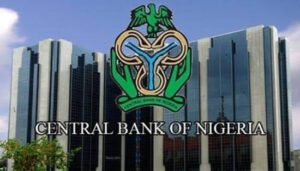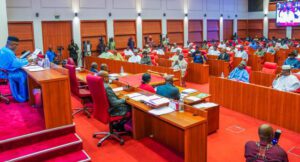
Stanbic IBTC Holdings declares 36% increase in profit to N30.67bn
Stanbic IBTC Holdings Plc, on Tuesday declares N30.67billion profit after in its audited half year ended June 30, 2022, representing an increase of 36per cent from N22.54billion reported in half year ended June 30, 2021.
The group on the floor of the Nigerian Exchange Limited (NGX) reported N39.98billion profit before tax in H1 2022 from N24.71billion reported in H1 2021.
Amid growth in profits, the management of Stanbic IBTC Holdings declared interim dividend of N1.50 per ordinary share of 50 kobo each, that is, N19.44billion, and it subject to deduction of appropriate withholding tax and regulatory approval.
The impressive performance in profits was driven by significant increase in net interest income and non-interest income.
Stanbic IBTC Holdings reported N50.35billion net interest income in H1 2022, representing an increase of 53per cent from N32.88 billion in H1 2021, while non-interest revenue stood at N62.96 billion in H1 2022, up by 37per cent from N45.91 billion reported in H1 2021.
The Group reported a total assets of N3.15trillion as of June 30, 2022, an increase of 15 per cent from N2.74trillion reported in full year ended December 31, 2021, driven by sharp increase in Gross loans and advances and Customer deposits.
For the year under review, Stanbic IBTC Holdings announced a gross loans and advances of N1.09trillion as of June 30, 2022, an increase of 16 per cent from N946.26billion reported in 2021FY, while Customer deposits increased by six per cent to N1.19 trillion as of June 30, 2022 from N1.13 trillion reported in 2021FY.
Commenting on the results, Chief Executive Stanbic IBTC Holdings, Dr Demola Sogunle in a statement said: “Despite the challenges we faced within the Nigerian operating environment in the first half of the year, we reported significant growth in our key metrics.
“Following our return to growth trajectory in the first quarter, the Group’s profitability increased by 36per cent year-on-year (YoY) driven by growth across our revenue streams, amid increased operating expenses.
“Our continued focus on the core of our business which is to grow our loan and deposit books, led to a 54per cent growth in interest income year-on-year.”
He added that, “Aligning with our commitment towards delivering to our shareholders, an interim dividend of N1.50 has been declared.
“We are on track in the achievement of the guidance we provided for the year following the progress we have witnessed based on our H1 2022 results.”



